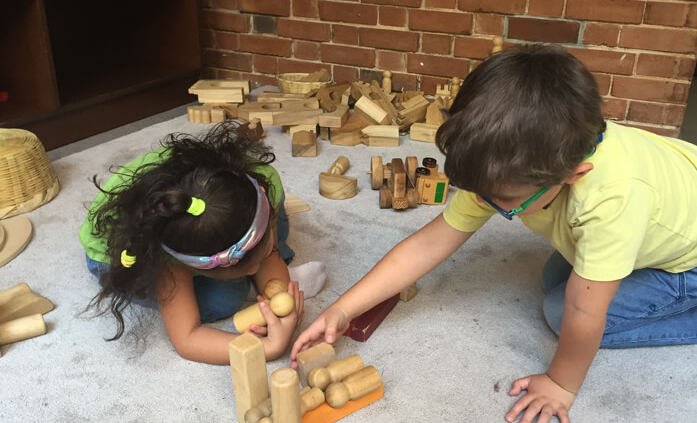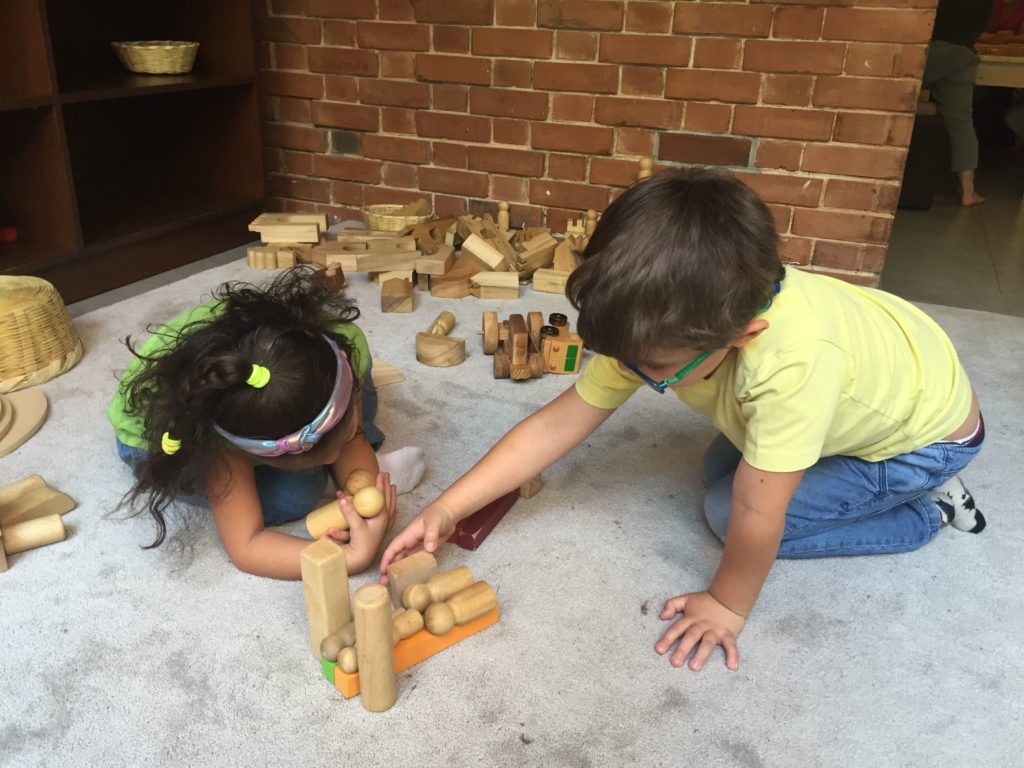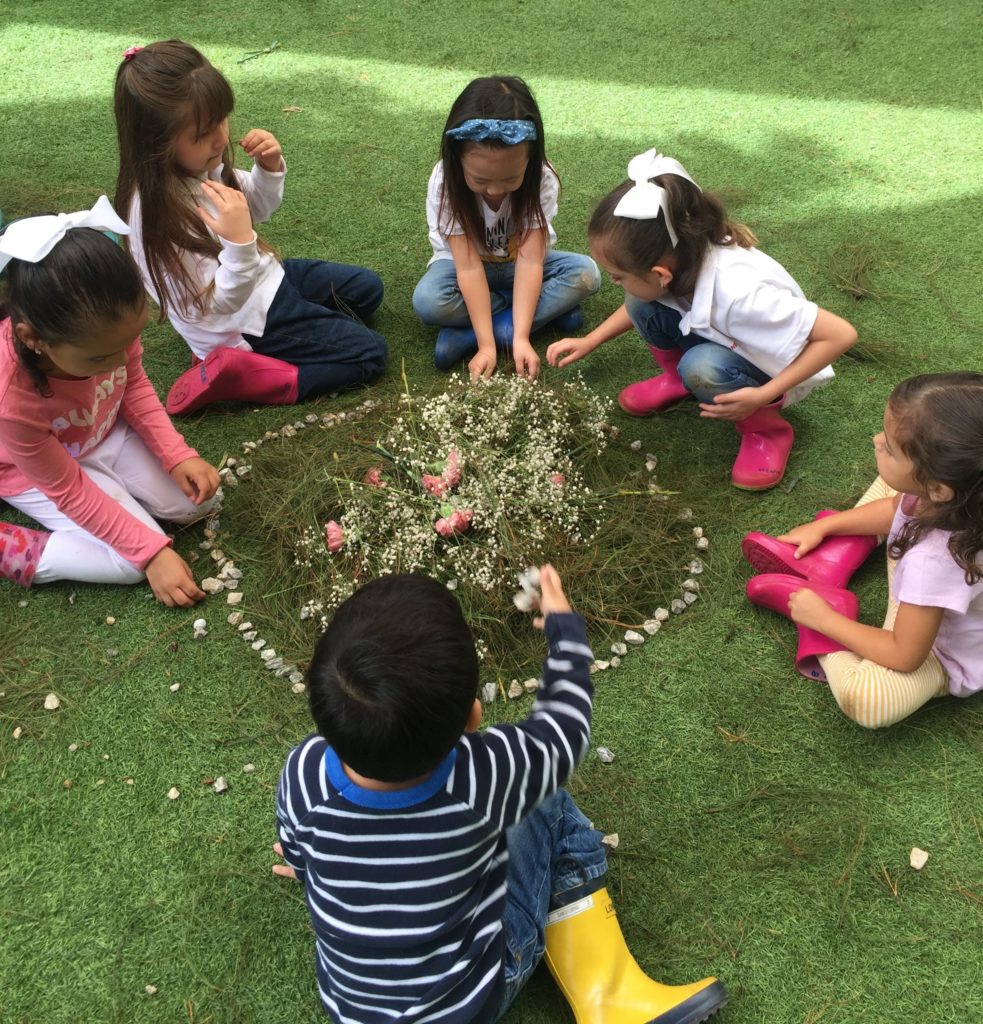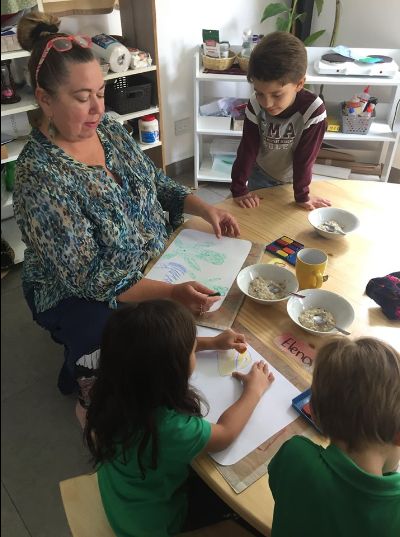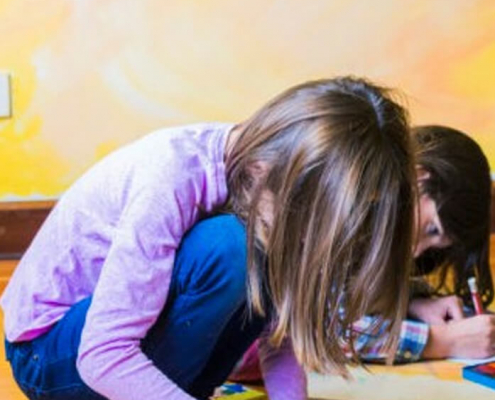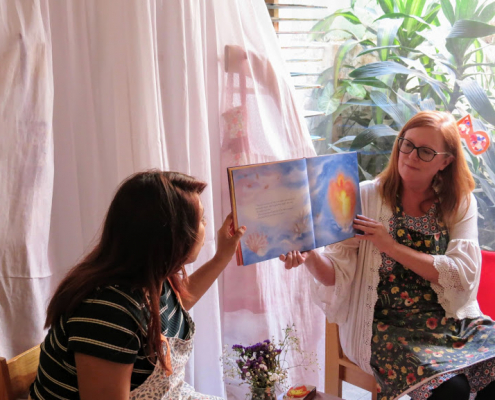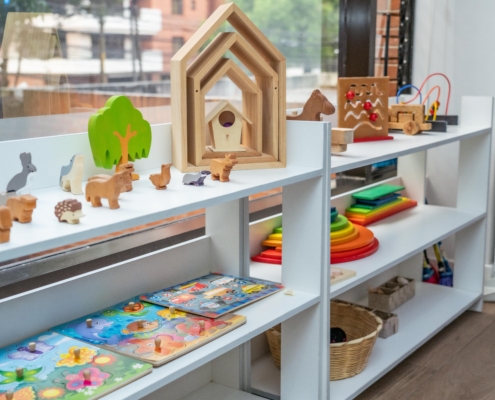Evaluating The Children In Early Education
Written by Carrie Riley, Trinus Early Chilhood Main Teacher
What I love about Waldorf education is just about everything! From the nurturing of the individual to the creative way we introduce more cognitive skills like math, reading and writing. One of the details I appreciate is how we evaluate our children in each grade. Today I’m going to share with you the process we use in early childhood at Trinus.
As a kindergarten teacher in a Waldorf school, my job is to teach to the whole child. I need to bring balance and rhythm to match the needs of each individual class. The mind, body and spirit of the child need to not only be respected but also encouraged. I need to set up the class to meet these needs.
Once I have set up the rhythm for daily, weekly and monthly classes I can start my individual observations on each child.
One of the first things I do is set up a home visit. These allow me to see a child in his own home and how he is there. I see where he sleeps and observe how he is at the lunch table. Does he need help with food? How is he managing the eating utensils? Is he allowed to get up from the table mid meal? And so on. This tells me right away what I can do to help build a bridge between home and school.
We encourage our children in class to try all foods, to serve healthy foods and support good table manners each meal. The bond and trust grows with each home visit and allows me to meet the child at their level and build the trust and bond between child, parent and myself, as a teacher.
As I am doing my observations, I take the following factors into account.
Drive: Do they complete tasks? Do they give up easily? Are they ready for school? Do they have energy for class?
Social Skills: Do they initiate play? Are they flexible with their play themes and different friends to play with? Do they only use TV or movie themes in play? Can they play with a variety of children in class, or favor just a few?
Memory: During free play, do they reenact the puppet shows? Do they sing the songs from circle time on their own? Do they recreate circle time by themselves with friends? Can they put toys away in a proper place? Can they remember the names of their friends? Do they remember the class rules? Follow 3 part directions?
Motor Skills: When painting, how do they hold their paintbrush? When eating, how do they manage their spoon or fork? Which hand do they favor? Can they stand on one foot? Can they cross their midline? Follow craft instructions?
Creativity/Imagination: Do they make up their own stories? Play themes? How do they solve problems? Can they work together to build something? Can they use open-ended toys in new ways?
Once a child and I have that trust, I can really start the evaluation process. As the children arrive, I will welcome them with a warm lavender-scented washcloth as I take their hands into mine. I notice if their hands are hot or cold, tense or open. I look into their eyes to see if they are tired, happy, sad or sick. I then speak to them so I can hear their voices and connect one on one with them before they go out to play with their classmates. I take notes on each child almost daily. I observe how they communicate with me and their classmates. My assistant will translate conversations between children that are happening in Spanish and I will encourage them to speak in English if I know they can. I observe their facial expressions when they walk into the room and when at play.
My goal is to set up their early childhood experiences in school as a positive one that will serve them in the years to come. They need to be able to communicate effectively, sit in their chairs until excused, raise their hands to be heard by the teacher, respect diversity, use the art tools correctly, have good use of their large and small motor development. The children will need to understand English and speak it by first grade so that the 1st-grade curriculum will be understood and embraced in our international school.
I am in touch with the grades teachers as well to communicate with my students’ challenges and strengths. We work on strategies together to ready them for 1st grade.
Each child should leave kindergarten ready to go onto the next step in their grade evolution. Happy, balanced and ready to learn.
Waldorf education surrounds the child with understanding, joy and warmth. Building a bond of trust and love helps the child believe in themselves.
